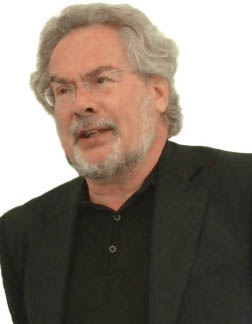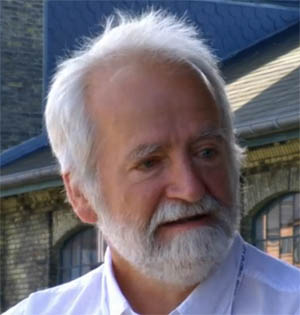The Foundation for Integrated Transport (FIT) has appointed Professor Phil Goodwin and Professor John Whitelegg as its first two Senior Fellows.
The charity said the appointments followed a public competition, which attracted a strong field of excellent applicants. Fellows are not employed by FIT but remain independent and autonomous.

Phil Goodwin
The overall theme of both fellowships is transport and climate change. The fellows are planning a number of specific working papers, events and activities, which will be worked up in more detail over the summer, with further details on the FIT website in the autumn.
Foundation secretary Alastair Hanton said: ‘The Foundation’s vision is for transport as a basic human right, provided with minimum impact on other people’s lives and the environment.
‘We are delighted that these fellowships will support the work of Phil and John – both distinguished scholars who have already made notable contributions to both the theory and practice of sustainable, integrated transport.’
Prof Goodwin plans work on the carbon effects of past and present roads programmes aimed at developing a net-zero compliant sustainable roads strategy; work on road space reallocation arising out of coronavirus pandemic; technical and evidence base used by activists campaigns, both in support of sustainable policies and against unsustainable ones.
He said: ‘FIT is establishing a reputation as a key charity in the transport field, with the fellowships and projects it supports, and indeed in the contributions made by the Trustees themselves.
‘It is an honour to be recognised in this way. The next two years will be of critical importance in developing transport’s contribution to environmental justice and climate protection, and I am looking forward to making a contribution in these testing times.

John Whitelegg
Prof Whitelegg plans a meta-review on measures and interventions with CO2 reduction results; collaboration with leading policy institutes including Wuppertal, Lund University, and Tyndall; best practice case studies e.g. Oslo, Freiburg, Lund; contacts with climate emergency centres in unitary and county councils; a workshop on measures and best practice; and short summaries based on the EU Evidence project in accessible style.
He said: ‘To tackle climate change, transport is a central issue, in some ways the most difficult but also the one where sustainable transport can best give improvements to people’s lives in local, everyday matters.
‘It will be great to develop this further, at a local, national and international level. Phil and I will be working on our separate agendas of work, and will also collaborate in joint work, which will be stimulating and productive.’
The FIT said there will be scope for interaction and co-operation on these work programmes, both with each other and with networks of other interested researchers and agencies, which will develop over the period.
Register now for full access
Register just once to get unrestricted, real-time coverage of the issues and challenges facing UK transport and highways engineers.
Full website content includes the latest news, exclusive commentary from leading industry figures and detailed topical analysis of the highways, transportation, environment and place-shaping sectors.
Use the link below to register your details for full, free access.
Already a registered? Login